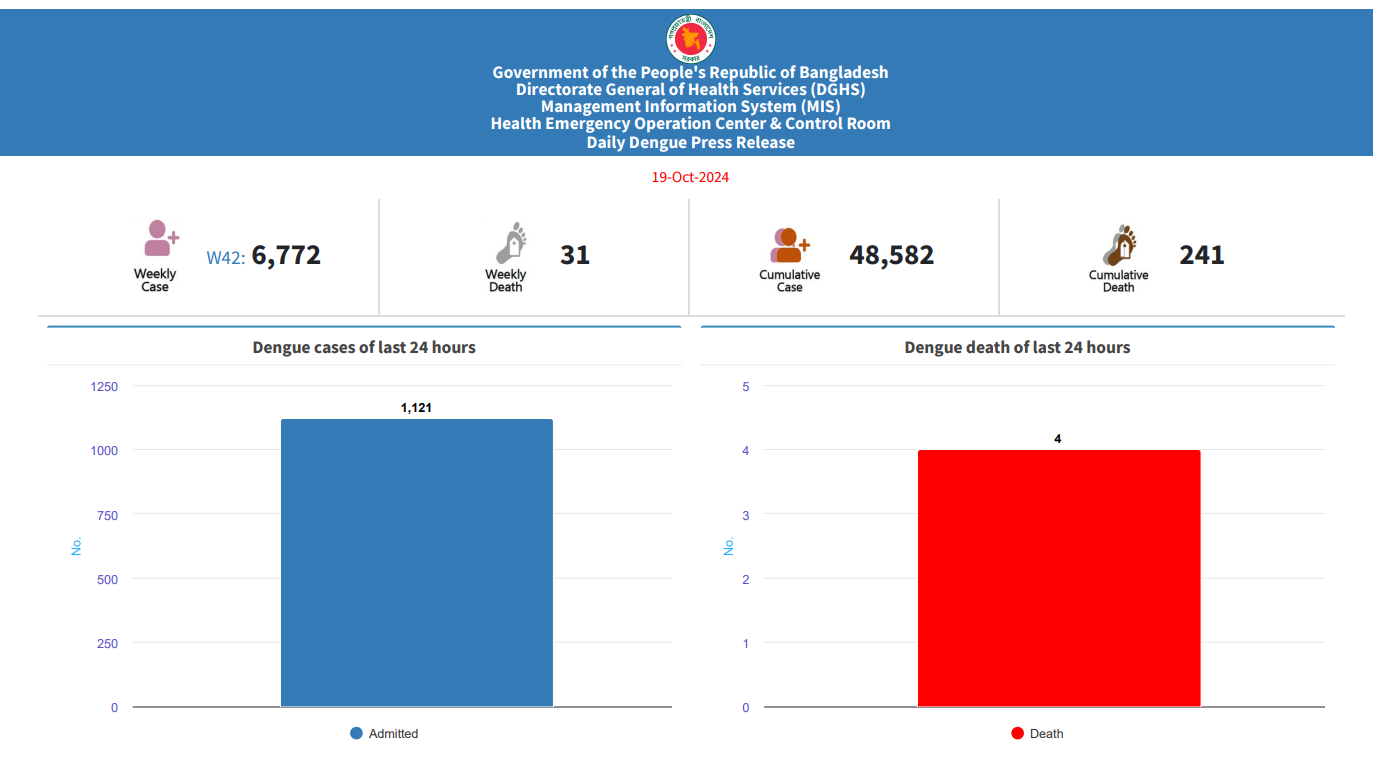In a follow-up on the dengue fever situation in Bangladesh this year, the number of dengue cases (hospitalizations) have more than doubled during the past month.
In my previous report, 24,034 cases and 131 deaths were reported through September 21.
These number have risen to a total of 48,582 dengue cases and 241 deaths through October 19 this year.
This follows an additional 1121 dengue hospitalizations and four deaths yesterday and more than 6700 cases and 31 deaths in the past week.
Males account for nearly 2/3s of the total cases (63.2%) and females account for 52.7% of the fatalities.
Subscribe to Outbreak News TV on YouTube
More than half the hospitalizations (25,588) are reported in people ages 16-35 for the year to date.
Division and city corporations reporting the most cases to date include Dhaka South City Corporation (DSCC) (10,120), Dhaka North City Corporation (DNCC) (10,085) and Chittagong (9,007).
In 2023, Bangladesh saw a record epidemic of dengue closing out the year with 321,179 total hospitalizations and 1,705 deaths.
Dengue is a disease caused by a virus spread through mosquito bites. The disease can take up to 2 weeks to develop with illness generally lasting less than a week.
Symptoms from dengue include fever, headache, nausea, vomiting, rash, muscle and joint pain, and minor bleeding.
Dengue can become severe within a few hours. Severe dengue is a medical emergency, usually requiring hospitalization.
In severe cases, health effects can include hemorrhage (uncontrolled bleeding), shock (seriously low blood pressure), organ failure, and death.
Related:
Polio cases in Pakistan rise to 39
Italy, France and Spain all report record numbers of local dengue transmission in 2024






Zinc, vitamin D, ivermectin and lots of coconut water along with anti inflammatory fever reducer all seem to help with dengue . There is no need for a vaccine